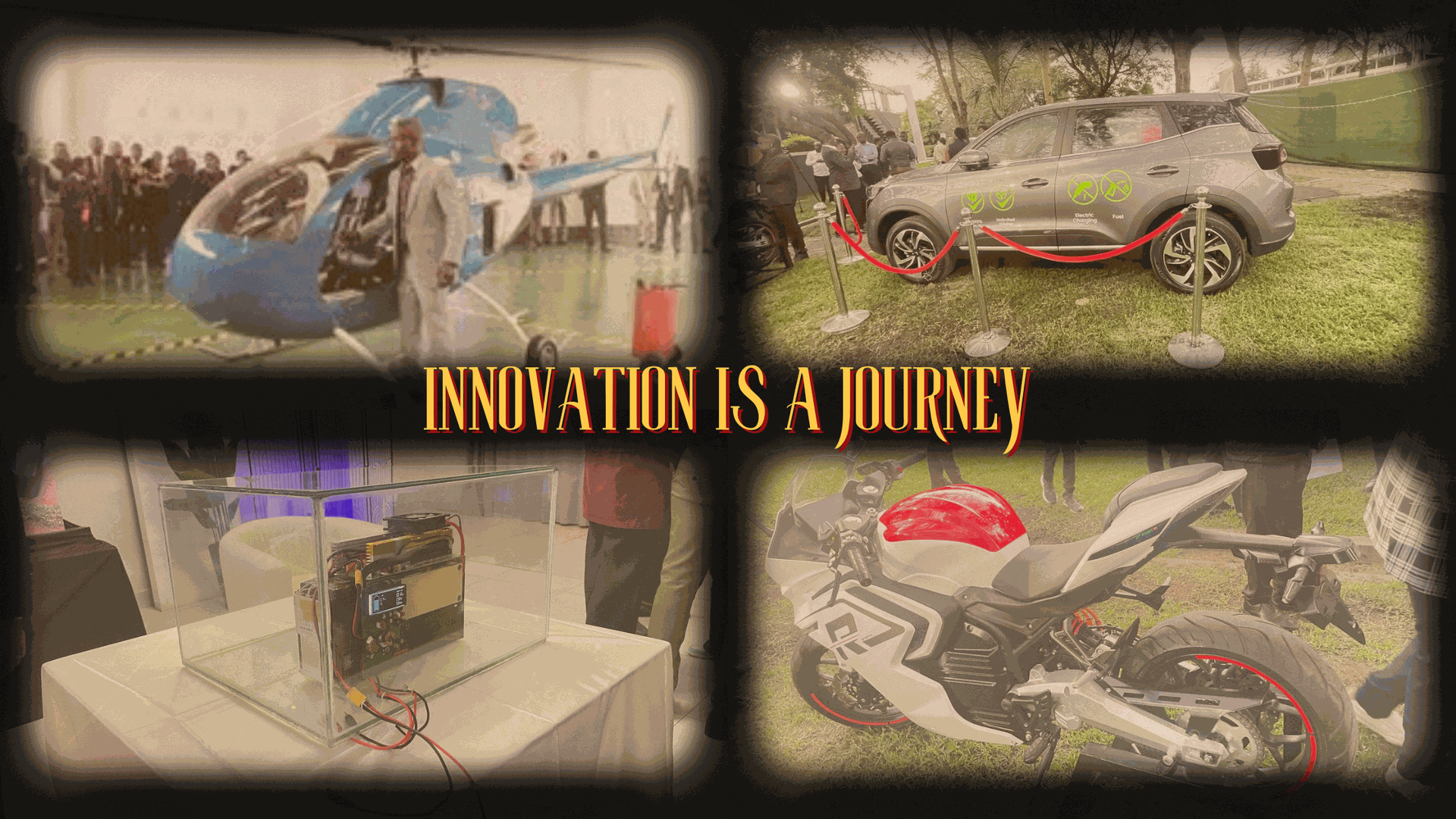Africa’s story of innovation is one of resilience, creativity, and uncharted potential. For too long, the continent’s brilliance has been overshadowed by narratives of dependency. Yet, visionaries like Maxwell Sangulani Chikumbutso are rewriting this script, proving that Africa is not just a participant in the global tech revolution—it is a trailblazer. His journey embodies the audacity of African innovators who dare to reimagine the future, even when the world questions their methods.
1. The Self-Taught Pioneer: Redefining What’s Possible
Chikumbutso’s story begins not in a lab or a Silicon Valley incubator, but in Zimbabwe, where he transformed curiosity into revolution. With only a basic education, he became a self-taught polymath, dismantling stereotypes about who gets to innovate. His early breakthroughs—like designing radio transmitters and digital navigation tools—were acts of defiance against a system that often equates credentials with capability.
This is the essence of African innovation: solutions born not from privilege, but from pressing need. Chikumbutso’s journey mirrors that of countless African inventors who lack formal training but possess an unyielding drive to solve problems.
2. The Inventions: Bridging Imagination and Impact
Chikumbutso’s creations are not mere gadgets—they are declarations of Africa’s capacity to lead in frontier technologies:

- The Self-Powering Electric Vehicle (SPEV): A car that harnesses radio frequencies, challenging the global energy paradigm. While skeptics debate its feasibility, the SPEV symbolizes a radical truth: Africa’s energy crises demand radical solutions.
- Green Power Off grid Generators: Devices that convert radio frequencies into electricity, offering decentralized energy access—a game-changer for rural communities.
- Hybrid Helicopters: Adaptable to six fuel types, these machines reflect Africa’s need for versatile, context-specific technologies.
- Microsonic energy device, a groundbreaking invention that captures radio frequencies and converts them into electricity. Unlike traditional energy sources, this device requires no external power input, making it a truly sustainable solution.
- A radio broadcasting transmitter.
- A digital navigation facilitator. A machine facilitates aircraft landing with abilities of autonomous landing. Its intelligent enough to calculate the position of the aircraft and informs the engines what thrust to use etc.
These inventions and more are not just technical marvels; they are blueprints for a future where Africa designs its own destiny.
3. The Struggle: Innovating Against the Grain

Every African innovator knows the weight of two battles: perfecting their craft and fighting for recognition. Chikumbutso’s work, dismissed by some as “impossible,” reveals systemic barriers:
- The Burden of Proof: African innovators often face disproportionate scrutiny. While Western inventors enjoy institutional trust, Chikumbutso’s radio-wave technology is met with skepticism rooted in outdated perceptions of African capability.
- Resource Scarcity: Unlike innovators in tech hubs, Chikumbutso operates in an ecosystem with limited funding and infrastructure. His partnership with Chinese firms to localize production is not just business—it’s a strategic reclaiming of Africa’s industrial agency.
Yet, his persistence mirrors a continental ethos: innovation thrives in adversity.
4. A New Narrative: Africa as a Laboratory for Global Solutions
Chikumbutso’s work transcends individual genius—it reflects a broader shift. Africa’s challenges (energy poverty, infrastructure gaps) are forcing innovators to leapfrog legacy systems. While the Global North tweaks existing tech, Africa is re-imagining it:
- Decentralized Energy: Technologies like Chikumbutso’s microsonic energy device align with global sustainability goals, offering models for off-grid communities worldwide.
- Cultural Innovation: African innovators blend traditional knowledge with cutting-edge tech. Imagine a world where SPEVs inspire urban transit reforms and revolutionize disaster response in remote areas.
This is not just innovation; it’s a philosophy of possibility.
5. The Call to Action: Building Scaffolds for African Genius
Chikumbutso’s story exposes gaps in Africa’s innovation ecosystem—and opportunities:
- Investment in “Moonshot” Ideas: Africa needs venture capital unafraid of risk, funding bold ideas that Silicon Valley might overlook.
- Storytelling as Advocacy: Platforms like Africa Innovation Spotlight are critical. By humanizing innovators, we dismantle biases and attract global allies.
- Policy Innovation: Governments must create sandboxes for experimental tech, fostering collaboration between inventors and institutions.
Rewriting the Future, One Invention at a Time
Maxwell Chikumbutso is more than an inventor—he is a metaphor for Africa’s unyielding spirit. His journey challenges us to ask: What if the world stopped dismissing African innovation and started learning from it?
The self-powered electric vehicles and green power off grid machines are not endpoints but sparks. They remind us that Africa’s innovators are not catching up; they are pioneering paths the world has yet to imagine. By amplifying their stories, we don’t just celebrate individuals—we ignite a movement.
Let Chikumbutso’s legacy be this: Africa’s greatest resource is not beneath its soil, but within its people. And their time is now.
Curious to learn more about how one man is redefining the future of energy and technology? Dive into the full story of Maxwell Chikumbutso here and discover how Africa’s innovators are leading the charge in solving some of the world’s most pressing challenges.
This article was crafted for Africa Innovation Spotlight—a platform dedicated to illuminating Africa’s untold stories of ingenuity. Join us in transforming curiosity into catalyst.

